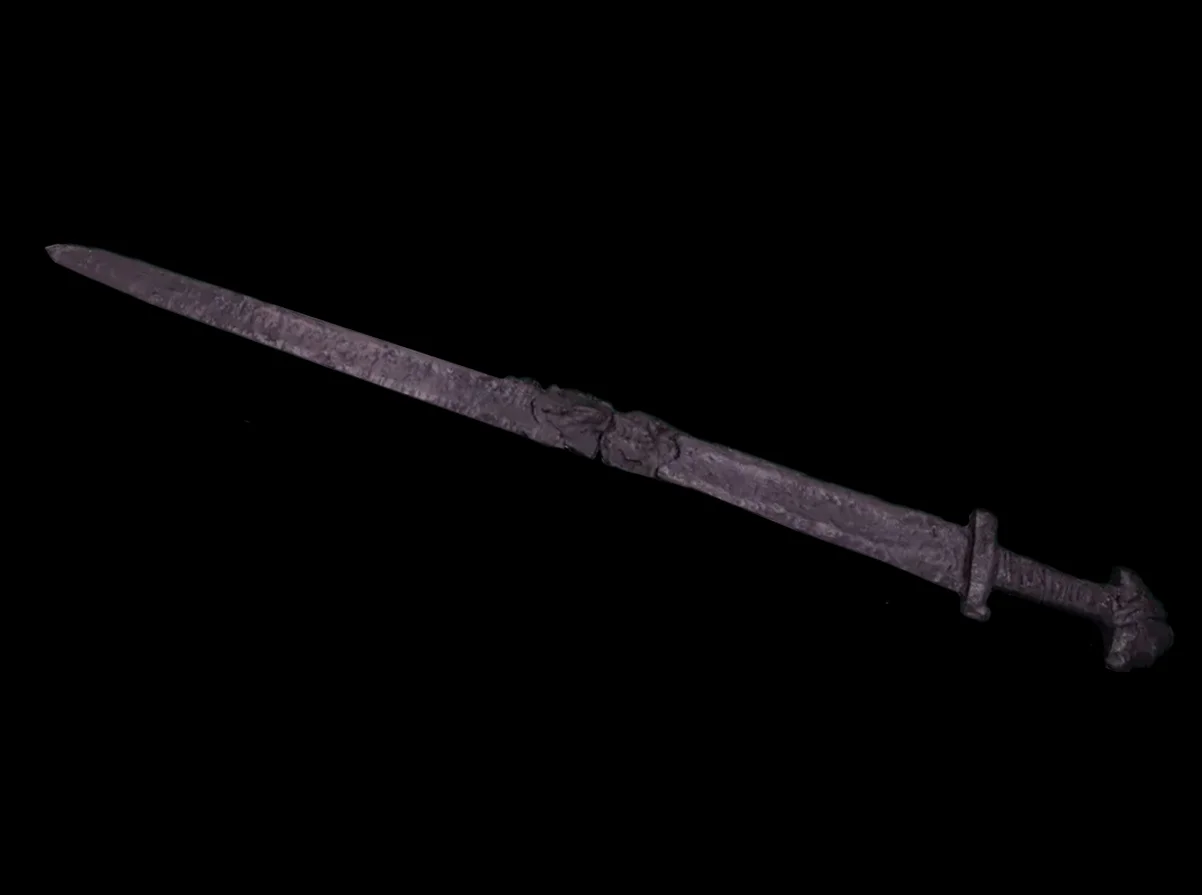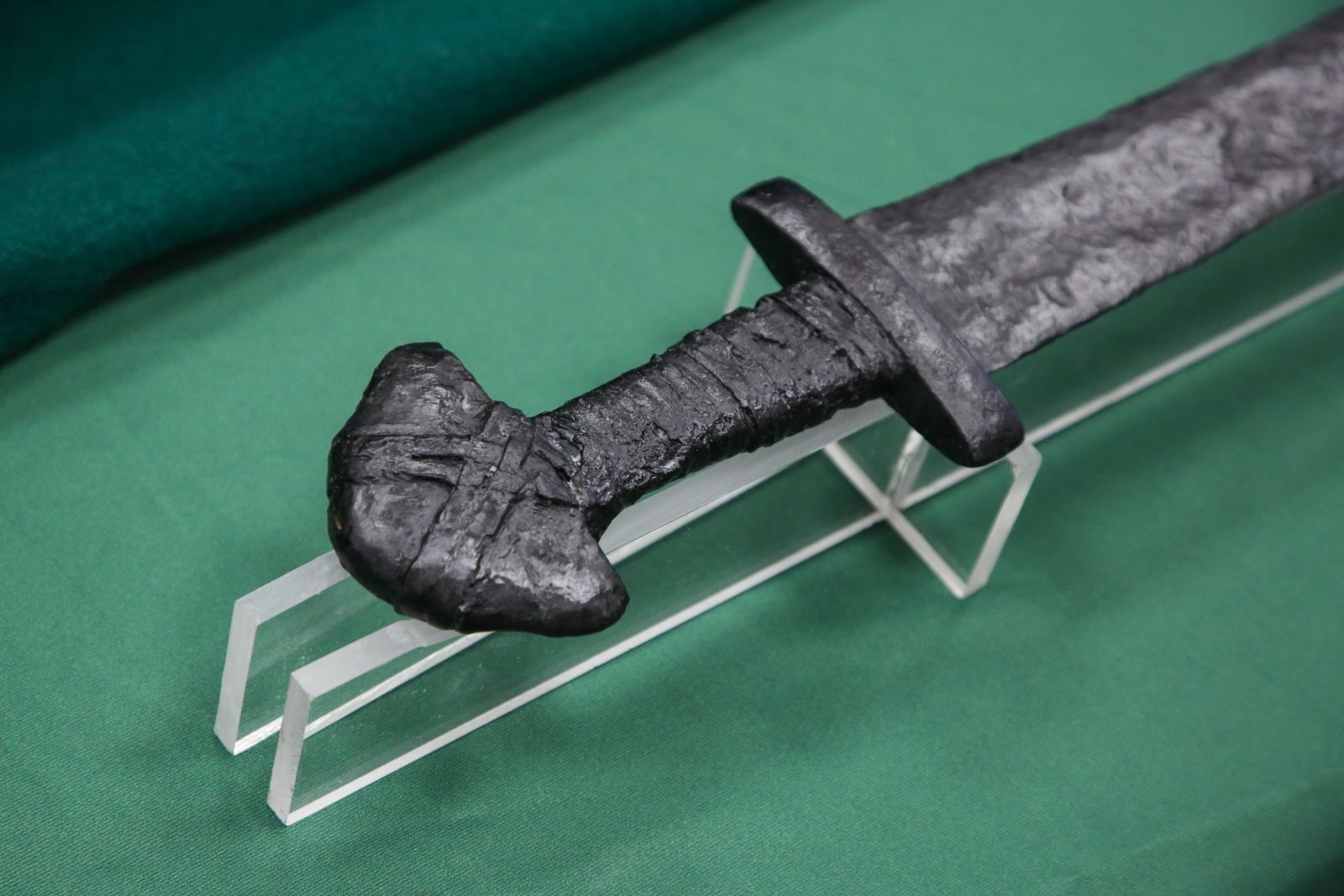The Military Museum in Białystok, located in northeastern Poland, has unveiled a Viking-era sword discovered by divers in the Supraśl River.
According to experts, the sword is one of only a handle of examples found in Poland and is completely unique to the region. “It is very unusual, from what I know, there are only three or four such swords in the country,” said Robert Sadowski, director of the Military Museum in Białystok.
Based on the form and shape of the hilt, it is likely Viking in origin, but may also relate to one of the Baltic cultures.
Poland during the Viking period was not a major arena of Scandinavian activity, however, archaeological evidence does confirm their presence in the material culture at trading and administrative centres.

Experts suggest that the sword likely dates from the late 9th to early 10th century AD, which may have been lost while crossing the Supraśl River or perhaps during a skirmish nearby.
The latter is supported following a closer analysis of the blade, revealing evidence of a violent history marked by micro-cracks, scratches, and splinters from enduring numerous blows in combat.
Dr. Ryszard Kazimierczak from Nicolaus Copernicus University in Toruń explained that the conservation process took place in a carefully controlled wet environment to prevent the sword from drying out after centuries embedded in river sediment.
The sword will now be added to the collection at the museum, joining a similar sword found in the 1970’s also recovered from the Supraśl River during drainage works.
Header Image Credit : Artur Reszko
Source : Science in Poland





